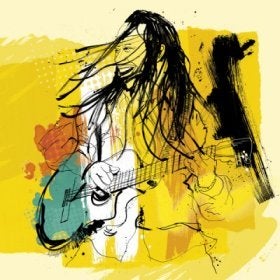A Study of Sacred World Music Traditions as a Potential Pathway To The Reduction of Human Hatred
The longstanding belief that music is “the universal language of humanity” is an idea, steeped in widespread appeal. This popular adage, embraced as truth, is not accepted throughout the academy and remains a somewhat elusive notion. Some researchers ask whether or not any given set of musically distinctive commonalities or attributes in music around the world actually exists? Empirical evidence linked to ethnomusicology regardless of analytical approaches, consistently demonstrates universally that nearly all music, is crafted by humans.
There is another viable characteristic grounded in considerable debate posing, “can any aspect of musical expression be labeled universal?” This question also challenges the aim of assigning “music”, let alone the modernist and fashionable term “world music”, a universally accepted definition. These factors coupled with limitations pointing to authorship and the range of how to evaluate the functionality of music within a given culture, makes it relatively clear why divergent perceptions within the academy will continue. This investigation acknowledges this disputation and chooses to use the term “world music” largely because it survives, is commonly employed by culturally diverse and inclusive music festivals around the globe. In addition, the term is as broadly used as a marketing platform across the music making industry. In tandem, these standards provide an essential underpinning this is fundamental to this presentation.
Stay informed on the latest news
Sign up for WPR’s email newsletter.
In addition, I am aware that a number of acknowledged scholarly inquiries on the global network of common musical phrases, pitches, rhythmic patterns, performance genres, thematic parallels, timbre, comparative vocalized approaches to the art of singing, melodies and socially-conscious content, inform how human rituals and behaviors intersect with group musical inclinations around the world. Unfortunately, and despite such a vast array of resources and research, there remains a sea of less traveled approaches assigned to the exploration of potential ‘universalisms’ in music.
This presentation navigates human expression linked to sacred ideas that I believe expose humanity’s deeply rooted rituals, daily practices and devout sentiments. Attitudes about self, others (how to treat the ‘stranger’), can be unearthed in this realm be they definitively theological, sacred or enshrined spiritual systems. Humans have used over time musical instruments and singing to express their ideas that include but are not limited to social issues, the environment, politics, marriage, birth, cultural traditions, historical events, love, the harvest, hunger, marriage, children, war, deities and death.
However, when these ideas are directed toward or on behalf of the divine, they ‘transform’ the practitioner, the follower, the believer or the adherent who as history has shown, carried out acts for good and bad toward those who are ‘different’. Within this transformative space lies potentially new discoveries and the opportunity to re-evaluate old ones that have the potential power to create greater understanding of those who are so-called “different”.
My presentation represents an ongoing inquiry that inspects themes, vocalized and instrument playing patterns, words and their sacred or spiritual meanings, specific rhythmic patterns and, the use of select musical instruments like drums, used in sacred world music traditions. From my experience these factors specifically articulate crucial insights that reflect a given religion’s or spirit system’s beliefs or practices. From scholarship and my own experiential evidence, the methodology used for this experiment analyzes the results with the purpose of learning if through sacred world music, increased understanding of those who are different may lead to the reduction of human hatred. 2.7.17
Wisconsin Public Radio, © Copyright 2024, Board of Regents of the University of Wisconsin System and Wisconsin Educational Communications Board.



